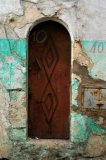|
Jardines Lejanos - Distant Gardens
Juan Ramón Jiménez
...He visto en el agua honda
de la fuente, una mujer
desnuda... He visto en la fronda
otra mujer... Quise ver
cómo estaban los rosales
a la lumbre de la luna,
y encontré rosas carnales.
Quise ver el lago, y una
mujer huyó hacia la umbría.
Todo era aroma de senos
primaverales; no había
manos santas ni ojos buenos.
Allá en la fiesta reían
las bellas de labios rojos;
desde la luz, me seguían
lánguidamente sus ojos...
Sollozaban los violines
bajo la negra arboleda...
Los soñolientes jardines
eran plata, nieve y seda...
Juan Ram�n Jim�nez (1881-1958).
El 25 de octubre se le otorga el
Premio Nobel. El libro m�s conocido
entre los suyos era Platero y Yo.
La Academ�a sueca reconoc�a en el
escritor el m�rito de 'su poes�a l�rica,
que en el lenguage espiritual constituye
un ejemplo de elevado esp�ritu y
pureza art�stica'.
|
Distant Gardens
Juan Ramón Jiménez
...I have seen in the fountain's
deep water, a woman
naked... I have seen in the frond
another woman... I wanted to see
how the rose bushes looked
in the splendor of the moon,
and found carnal roses.
I wanted to see the lake, and a
woman fled toward the shadows.
All was aroma of springlike
breasts; There were no
saintly hands nor good eyes...
There in the fiesta laughed
the red lipped beauties;
from out the light their eyes
languidly followed me...
The violins sobbed
under the black grove...
The somnolent gardens
were silver, snow and silk...
Juan Ram�n Jim�nez (1881-1958)
On October25, 1956 he was awarded
the Nobel Prize. His most famous book
was Platero and I. The Swedish
Academy recognized in the writer 'his
lyric poetry, which in spiritual
language constitutes an example of an
elevated spirit and artistic purity.'
|
